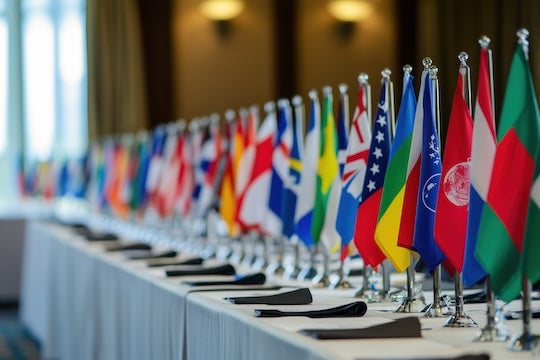
As global leaders prepare to gather for the upcoming G20 Summit, climate policy is expected to dominate the agenda - from accelerating net-zero commitments and clean energy transitions to navigating geopolitical tensions that shape global emissions pathways. Reporters covering the meeting and its implications for climate strategy can turn to Rice University's engineering and science experts for timely, evidence-based analysis in the following areas:
Climate policy, emissions cuts, Paris Agreement
Daniel Cohan, professor of civil and environmental engineering
Cohan specializes in atmospheric modeling, air quality management and energy policy and wrote the book "Confronting Climate Gridlock."
Can discuss:
- S. and international climate policies.
- Pathways to cutting fossil fuel emissions and meeting climate targets.
- Impacts of policy rollbacks including reduced renewable energy incentives.
- Implications of U.S. withdrawal from climate accords and potential global ripple effects.
- Cost-competitiveness of renewable energy with fossil fuels.
Sustainable domestic materials manufacturing, secure supply chains, clean hydrogen
Matteo Pasquali, the A.J. Hartsook Professor of Chemical and Biomolecular Engineering; founding director, Carbon Hub
Pasquali leads the Carbon Hub, a global consortium developing technologies that produce sustainable carbon materials alongside zero-emission hydrogen, offering new pathways to industrial and transportation decarbonization, secure supply chains and domestic manufacturing.
Can discuss:
- S. clean energy-transition strategies that leverage natural resources and strengthen manufacturing and economic growth.
- Industrial decarbonization via substitution of obsolete industrial materials with new materials that are cleaner and more efficient by design.
- Benefits of co-producing two valuable products (materials and clean hydrogen) and its role in meeting national climate goals without sacrificing economic growth.
- Intersections of materials manufacturing, energy use, hydrocarbon use and economic and climate policy.
Climate change impacts, extreme weather, hurricanes
Sylvia Dee, associate professor of Earth, environmental and planetary sciences and civil and environmental engineering
Dee is a climate scientist whose work examines how natural climate patterns combine with human-driven warming to intensify extreme weather.
Can discuss:
- How climate change is driving more intense heat waves, stronger hurricanes and more severe storms.
- Climate risks facing vulnerable U.S. regions.
- What climate models reveal about future hydrological extremes and infrastructure vulnerability.






